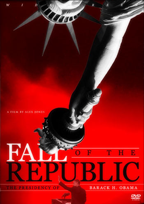 Man who both approved and covered-up government slaughter of 76 people, including 20 children, will lead move to establish international model of law enforcement
Man who both approved and covered-up government slaughter of 76 people, including 20 children, will lead move to establish international model of law enforcement
UN and Interpol officials will meet today to discuss the formation of a “global police force” that would enjoy access to a worldwide database of DNA, biometric and fingerprint records. The effort will be spearheaded by a man known as “The Enforcer” who helped federal authorities both conduct and cover up the murderous Waco siege which killed 76 people in 1993.
“Interpol and the United Nations are poised to become partners in fighting crime by jointly grooming a global police force that would be deployed as peacekeepers among rogue nations riven by war and organized crime, officials from both organizations say,” reports the New York Times.
The emergence of a global police force is of course something that people like Alex Jones have been warning about for well over a decade. The global police force, just like the world army, is a key centerpiece of the march towards a dictatorial global government.
Those who were once called paranoid conspiracy theorists for claiming that the plan all along has been to centralize law enforcement into a global body run by the world government under the auspices of the UN and Interpol have been proven right once again.
For a taste of what Americans who aren’t so favorable to taking orders from foreigners on home soil can expect, consider the fact that the secretary general of Interpol, and one of the men at the forefront of setting up the global police force, is none other than Ronald K. Noble.
Noble, who is known as “The Enforcer,” has been instrumental in working with Chinese authorities to provide policing in the Communist country for major national events. However, his most notorious role was in ordering and then, in his position as Undersecretary for Enforcement of the United States Department of the Treasury, whitewashing the actions of the BATF following the federal government’s murderous siege on the Branch Davidian compound at Waco which killed 76 people including more than 20 children and two pregnant women in April 1993.
As Carol Moore writes, “Noble had approved the decision to go ahead with the raid,” and therefore, “had little interest in issuing a report that either would challenge significantly the BATF’s investigation or modus operandi or would admit these led to crimes against the Davidians.”
Noble ignored in his report more than a dozen eyewitness reports, along with photographic and video evidence, of a BATF helicopter firebombing the Waco church during the siege. He also ignored David Koresh’s July 1992 invitation to the BATF to inspect the Waco compound, which if it had gone ahead could have prevented the siege and the murder of 76 innocent people altogether.

The 1993 Waco Siege.
“During the hearing, Friend-of-Bill Webster Hubbell denied repeatedly that he and Clinton had discussed the Waco situation informally, and improperly. However, an Associated Press article claimed Hubbell had revealed he was giving Clinton updates on Waco. And House staffers discovered a memorandum in which then-Treasury official Ron Noble asserted Hubbell would take the matter up with Clinton if the Treasury Department’s review did not downplay BATF errors. Clearly, Noble condones covering up government crimes against citizens,” writes Moore.
Noble was picked directly for the position of secretary general at Interpol by fellow Waco siege accomplice, former Attorney General Janet Reno.
During his September 2005 secretary general re-election acceptance speech in Berlin, Noble attributed Interpol’s ‘rebirth’ to the events of 9/11, saying that the terrorist attacks allowed the organization to go from being treated as largely irrelevant to setting it on the path to becoming an international police force.
Noble told the New York Times that one of the main roles of the global cops would be to stop people to check their identities against a global database.
“The police will be trained and equipped differently with resources,” Mr. Noble said. “When they stop someone, they will be consulting global databases to determine who they are stopping.”
Source











